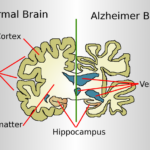Activist groups challenge healthcare initiatives aimed at reducing disparities among minority patients.
- Cleveland Clinic faces allegations of racial discrimination in stroke prevention programs for minority patients.
- Activist groups argue that targeting treatment based on race violates the Affordable Care Act and Civil Rights Act.
- The complaint highlights ongoing health disparities between Black, Latino, and white patients.
- Legal experts note that such cases challenging DEI initiatives in healthcare are unusual.
- Cleveland Clinic maintains its mission is to provide care regardless of race or ethnicity.
The Cleveland Clinic, a renowned hospital system, is currently embroiled in a legal battle over its stroke prevention programs aimed at Black and Latino patients. Activist groups have accused the clinic of illegal racial discrimination, claiming that its targeted initiatives violate both the Affordable Care Act and the Civil Rights Act of 1964. This complaint marks a significant shift in the ongoing debate surrounding diversity, equity, and inclusion (DEI) programs in healthcare, as it questions the legality of using race and ethnicity to guide treatment and preventive care. nnStatistics reveal that Black men and women are at least twice as likely to die from strokes compared to their white counterparts, prompting hospitals nationwide to implement programs to address these disparities. However, the complaint filed with the federal Department of Health and Human Services argues that such race-based initiatives are discriminatory, regardless of their intentions. nnCleveland Clinic has defended its programs, stating that they are designed to provide equitable care to all patients, irrespective of their racial or ethnic backgrounds. The clinic’s minority men’s health center and stroke program were established to address the significant health disparities that exist, particularly in conditions like diabetes and stroke. nnLegal experts note that while there is a growing trend of challenging DEI initiatives in various sectors, cases specifically targeting healthcare practices are rare. Previous legal battles have seen some success, such as New York’s defense of its directive to consider race in distributing Covid treatments. nnThe complaint raises important questions about the role of race in healthcare and whether initiatives aimed at helping minority groups can be justified in light of existing health disparities. Critics argue that such programs could foster division and mistrust in the healthcare system, while proponents believe they are essential for addressing systemic inequities. nnAs the Cleveland Clinic’s case unfolds, it will likely set a precedent for how healthcare providers approach DEI initiatives and the legal implications of targeting treatment based on race.·
Factuality Level: 7
Factuality Justification: The article presents a complex issue regarding race-based healthcare initiatives and legal challenges against them. While it provides factual information and cites relevant legal and medical perspectives, it also includes opinions and interpretations that may not be universally accepted. The article avoids sensationalism and redundancy, but some statements could be seen as biased or lacking in comprehensive context.·
Noise Level: 7
Noise Justification: The article provides a detailed examination of the legal and ethical implications of race-based healthcare initiatives, presenting various perspectives and evidence regarding health disparities. It discusses the Cleveland Clinic’s programs aimed at minority patients and the legal challenges they face, while also referencing broader trends in healthcare and diversity efforts. However, it could benefit from a more focused analysis on the consequences of these initiatives and their effectiveness, which slightly detracts from its overall clarity and actionable insights.·
Public Companies: Cleveland Clinic (), Comcast (), American Heart Association ()
Private Companies: Wisconsin Institute for Law and Liberty,Do No Harm
Key People: Andrea Pacetti (Spokeswoman for Cleveland Clinic), David Glasgow (Executive Director of New York University School of Law’s Meltzer Center for Diversity, Inclusion and Belonging), Mitchell Elkind (Professor of Neurology and Epidemiology at Columbia University and Chief Clinical Science Officer at the American Heart Association), Stanley Goldfarb (Chairman of Do No Harm and Retired Physician), Cara Tolliver (Associate Counsel at Wisconsin Institute), Jason Schwartz (Law Partner at Gibson Dunn & Crutcher)
Financial Relevance: No
Financial Markets Impacted: The article discusses healthcare discrimination and legal challenges but does not directly impact financial markets or companies.
Financial Rating Justification: The content primarily focuses on healthcare disparities and legal issues surrounding race-based medical programs, which does not pertain to financial topics or market impacts.·
Presence Of Extreme Event: No
Nature Of Extreme Event: No
Impact Rating Of The Extreme Event: No
Extreme Rating Justification: The article discusses allegations of discrimination in healthcare practices but does not report on any extreme event that occurred in the last 48 hours.·
Move Size: No market move size mentioned.
Sector: Healthcare
Direction: Down
Magnitude: Large
Affected Instruments: No
 www.wsj.com
www.wsj.com 



